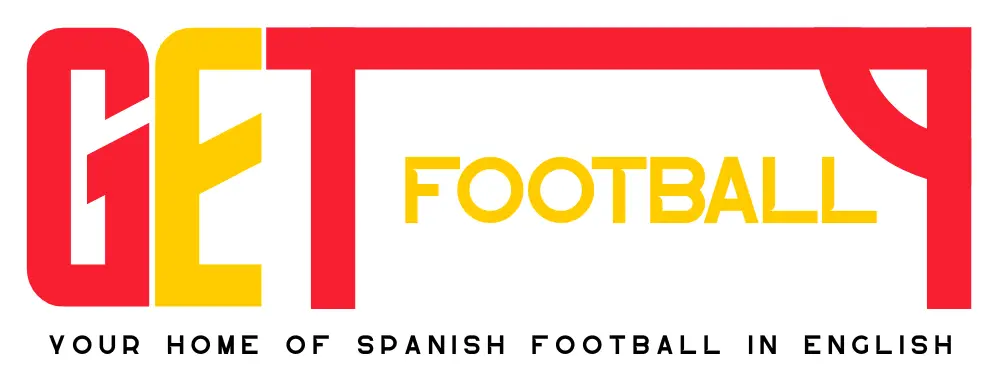This article is taken from Get Football’s European Football publication, The Modern Footballer. In his dedicated Real Madrid column, Tommy Hay looks at Zinedine Zidane’s style as a leader in charge of the biggest club in world football. Print and digital copies available here: http://bit.ly/TMFIssue3 Check out our social media to get your copy.
Late August 2017. Zinedine Zidane arrives for his bikram yoga class accompanied by his wife, Véronique. His entrance is characteristically low key, the Frenchman carrying himself with the usual discretion that we’ve come to expect of him over the years. As a player, it’s common knowledge that Zidane was among the finest to have ever graced the game, but you wouldn’t know it given the understated manner in which he typically makes his way into a room. He’s not the only member of the Real Madrid staff taking part today – current director of public relations Emilio Butragueño is also a bikram fanatic. A boyhood fan of Los Blancos, Butragueño spent eleven years as a first team player at Madrid in a celebrated career and knows all about the pressures of life at the Santiago Bernabéu.
Like the man himself, Zidane’s choice of attire for today’s class is something of a contradiction. Despite the fierce 42 degree heat and 40% humidity in the room – almost equal to that of a Turkish bath – Madrid’s manager has several layers of clothing on, making the experience all the more demanding. Zizou credits bikram yoga and a largely plant-based diet for the fact that, at 48, he now weighs less than he did as a player. It’s also an exercise in self-control, the value of which need not be explained to him at this stage in his career.
A customarily grueling press conference awaits Zidane in a matter of hours. It’s only been two months since he guided Madrid to their second consecutive Champions’ League title – a resounding 4-1 win over Massimiliano Allegri’s Juventus in Cardiff – but life at the helm of the biggest club in the world is never an easy ride. Zidane will be bombarded with specific questions regarding transfers and asked to provide precise details about who will be coming in and who will be going out. He and his team’s drive will also be put into question, and he will be asked on more than one occasion whether he has the ability to take the Spanish and European champions to the next level of footballing dominance.
Maximum restraint will be required on his part to remain calm and keep the press on his side, lest he be confronted with the predictable headlines questioning his temperament that have haunted him since his career ended in such traumatic circumstances back in 2006.
Fast forward to the autumn of 2020 and the world has changed significantly. In the midst of arguably the worst pandemic since the unfortunately named ‘Spanish’ influenza of 1918, Spain – and Spanish football – have been deeply affected. The front pages are dominated with news of spikes in new coronavirus infections amid fears that the country could be heading back into varying levels of lockdown. La Liga has likewise been thrown into occasional spells of turmoil with numerous cases of players testing positive for the virus, disputes between the League and the Federation, all causing games to be postponed. The continued absence of fans in the stadiums is a constant reminder that this is anything but a regular league campaign.
The financial losses stemming from a lack of gate money and other challenges related to COVID have also been significant, and consequently, the summer’s most talked about signings have been largely internal affairs. This has not been so much welcomed as accepted by most La Liga clubs, who understand the constraints of the current situation. Atlético Madrid’s board has been transparent about their intention to have no more money going out than comes in at the Wanda Metropolitano, with much being made of their low-cost acquisition of Luís Suárez from Barcelona. Across the city, however, some are finding it more difficult to adjust to the new reality.
At Valdebebas, Real Madrid’s training facility which houses their temporary home ground – Estadio Alfredo Di Stefano, journalists are every bit as expectant as they were in 2017 that the next galáctico signing is just around the corner. Zidane’s interactions with the press over the last few months of the transfer window haven’t exactly been tense affairs, but they have been populated by increasingly desperate journalists hoping for the slightest ember to spark on something even closely resembling a big name signing. The manager, for his part, has responded as a matter of routine by strolling into the Valdebebas press room with the proverbial bucket of cold water.
The Frenchman continues to show restraint in these situations as he did previously, but years of experience have earned him the right to be more direct with those asking the questions. When the issue of transfers is raised, Zidane responds in a tone reminiscent of a parent swatting away their child’s latest request for another video game.
“We’ve got plenty of people here and you’re asking me to bring more in? What for? It’s complicated enough for me to put a team together as it is because all of the players that I have here are fantastic. Honestly, I’m happy.” he declared to a deflated group of journalists at the end of September.
To say that Zizou has managed to tame the Spanish media is, of course, an exaggeration. He does however seem to have developed the ability to steer these conversations in the desired direction – towards the field of play and away from what’s happening behind the scenes at the club. Zidane has said previously that his squad is inflated, yet Madrid’s restraint in the last window was almost certainly as much to do with finances as it was a footballing issue. After all, if it is indeed the case that, as reported, Florentino Pérez and his board are looking to cut €200m from a budget already weakened by a loss in gate money and a stadium renovation set to be in the hundreds of millions, a more moderate attitude towards recruitment may not be the worst place to start.
The money spent in recent years on building a team for the future would suggest that a different approach is indeed being taken, with the likes of Fede Valverde, Martin Ødegaard, Marco Asensio, Dani Ceballos, Takefusa Kubo, Rodrygo Goes, Vinícius Júnior, Jesús Vallejo, Reinier, Brahim Díaz and Andriy Lunin all brought in under the age of twenty for a combined total of €175.7m. The fact that their market value has since risen to €355.5m, as per Transfermarkt, is proof that such investments are as shrewd as they are ambitious, but they remain a far cry from the galáctico signings that have become synonymous with the Pérez eras.
We should not be surprised if Zidane’s press conferences in the coming months continue to be non-events, because this is exactly how they should be in the eyes of the board. The focus at all times must be directed towards what’s happening on the field, and Zidane’s experience has made him a genuine master at doing just that.
In a market dominated by high spending English sides, it remains to be seen whether Madrid will return to an era of galáctico signings at any time in the near future. While the inactivity in the transfer market of late continues to be an almost alien concept to a fan base conditioned into a very different way of doing things under this president, the man currently in charge appears more than capable of steadying the ship. It is perhaps this sense of control above all else that will serve as Zidane’s greatest strength through whatever lies ahead.











